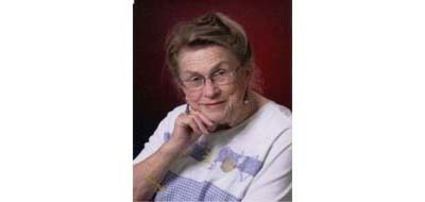I love a piano
The Spirit of Tehachapi
August 15, 2020
Not long ago I wrote about my father's purchase of a piano for our family in the amount of $75. It was money given World War I veterans as a bonus for time served.
It was called The World War then, "The War To End All Wars." Later, of course, it had the number one attached to it to differentiate between it and World War II. Getting back to the piano, I resurrected this little piece about a piano with a past.
On Sunday mornings, when our church choir is practicing and warming up before Mass, we are in a classroom that contains a vintage piano. It is an old upright grand with lots of fine brass "innards." There is no manufacturer's date showing but I know it's in there somewhere. It does say it's guaranteed for 10 years! Since I can trace it's beginning back to the early days of the 20th Century, the guarantee obviously expired over 100 years ago. I cannot help but think of the old Irving Berlin song, written in 1915, "I Love a Piano," a song which, on rare occasions, one still hears.
A long time friend of mine, Mary Watts Farrell, said that her two aunts, Elizabeth and Ethel Erbel had married two Tehachapi men: Sam and John Cuddeback, who were cousins. To keep one from wondering, Elizabeth married Sam and Ethel wed John. The newlywed couples acquired some household furnishings among which was the upright piano of which I speak.
Sam and John Cuddeback were the owners of the Opera House, the City of Tehachapi's meeting place, and wanted the piano for the silent movies which were also featured in their building. The old silent movies usually had a pianist who set a musical scene by playing mood music to get people properly inspired for the glad, bad and sad scenes. It was an important piece of equipment. It just happened that the brides, Elizabeth and Ethel Cuddeback, had a niece –Margaret Erbel- who played piano quite well, and who secured work accompanying Charlie Chaplain and other movie stars as they "silently" over-dramatized their actions in that amazing invention, "Moving Pictures!" It also served traveling troops of show people and concerts until 1920. Some old timers say it was torn down and others say it burned down. At any rate, it has been gone for over 100 years.
Elizabeth Cuddeback gave the piano to local girl, Margaret Sola, daughter of a local barber. She took lessons for a while. Margaret later loaned it out to friends for their children to learn how to play. Then, our traveling, 1,200 pounds of solid oak, brass, with real ivory on its 88 keys, ended up at the old French Hotel located where the Hitching Post Theatre now stands. I remember, as a child, walking past and hearing the beautiful French/Basque songs wafting out to greet me.

The French Basque were a people who, "cried for one another's sorrows and laughed with their joys."
The French Hotel ceased to be in 1945 in favor of an Italian restaurant called The Tehachapi Inn with John Rizzardo, native Italian, as proprietor. Margaret Sola, still the owner, finally donated the instrument to St. Malachy Catholic Church and it has since remained in the classrooms located behind the church. By this time, someone had painted it a sickly green and, as I recall, there were chips in the paint showing other colors prior to the green.
There was a time, in 1984, when Father Godfrey Raffel, a gifted pianist, and at that time Chaplain at the California Correctional Institution in Cummings Valley, thought he'd like the piano to use for the inmates in the chapel. As a joke, St. Malachy parishioner, Mary Farrell, put an article in the local paper with the headline, "Prison Padre Purloins Piano." She listed the piano's genealogy and the article got a few laughs from those reading it.
Delores Smith, also a St. Malachy parishioner, after reading the news article, volunteered to refinish the vintage piano before its confinement began. Multiple coats of paint were removed and a beautiful oak wood exterior was revealed.
As it turns out, old "88" didn't do any time at CCI. Father Raffel's duties ended and the piano with the face lift still stands in one of the classrooms. The brand name was erased from the front by the many coats of paint but inside on the brass work it says, "STEINECK #33918." These days when someone plays it, you will hear mostly church hymns but somewhere in its interior among those many hammers, strings and keys, one might imagine the echo of those French/Basque songs from the old French Hotel or visualize Charlie Chaplain, the Silent Movie star, as The Little Tramp and his trials and tribulations.
P.S. The Rest of the Story: After the article appeared in The Loop newspaper in March of 2015, I received a note from some very kind soul who researched the serial number of the piano. Old "88" was manufactured in the year, 1907. The Steineck Music Company was located in New York City and only stayed in business from 1906 until 1917. All 88 keys still play and the beautiful bell tone still sounds great. Don't you just love a piano?




